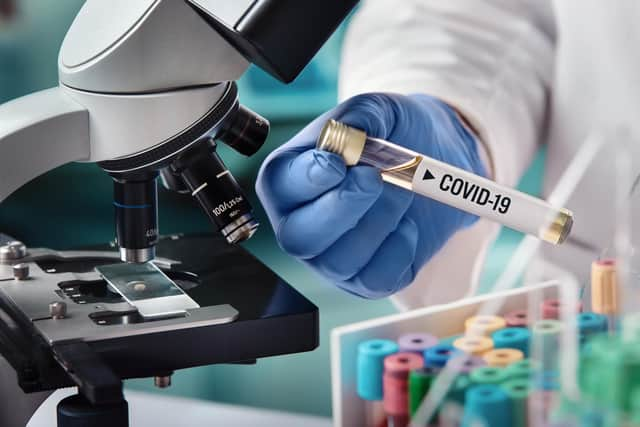Covid case rate in Bedford has fallen by 15% - but is still above average
and live on Freeview channel 276
The Covid seven-day case rate in Bedford Borough has fallen by 15 per cent over the last week, but the borough is still above the East of England average.
The council's chief officer for public health, Ian Brown, told the Local Outbreak Engagement Board yesterday (Thursday, February 3) that some of the cases were those who have been re-infected.
Advertisement
Hide AdAdvertisement
Hide AdHe said that on Wednesday (February 2), the seven-day case rate was 1,460 per 100,000, which was the ninth highest number for upper tier local authorities in England.


"Today's data released about an hour ago have shown that's now dropped to, I think, number 11," he said.
"That's still significantly higher than the East of England average, of around 1,181 per 100,000 which has remained relatively stable.
"It is a little bit higher than Central Bedfordshire [1,285] and Luton [1,378], but a little bit below Milton Keynes [1.540] at the moment, which has overtaken Bedford in the last few days.
Advertisement
Hide AdAdvertisement
Hide Ad"We have seen a number of Covid-19 patients in Bedford Hospital reduce significantly over the last couple of weeks,
"It's actually halved over that period to 54 patients with Covid-19 at the hospital yesterday," he added.
On Monday, there was a change to the way Covid cases are recorded on the National Dashboard, it now indicates re-infections.
"So now infections that are outside of 90 days within a single person are counted as two different episodes of infection," Mr Brown said.
Advertisement
Hide AdAdvertisement
Hide Ad"In mid-December, when Omicron became the dominant variant, the proportion of cases that were re-infections or possible re-infections jumped from around one per cent to around about nine per cent.
"I think we're all experiencing in our families and our friends, that we're seeing people infected for the second time and that's the result of the Omicron variant, previous to that there were very few reinfections," he said.
Councillor Sue Oliver (Labour, Kempston North Ward) said: "The message would still be to people whether you've had it or not, you really should still get your vaccinations or your boosters."
Dr Vijay Nayar, a local GP representin BLMK CCG, said: "Natural infection will give you antibodies and T cells and protection, but it will wane, so it won't give you a long-lasting protection.
Advertisement
Hide AdAdvertisement
Hide Ad"That booster jab gives you that long-lasting protection, gives you antibodies but more importantly gives you those T-memory cells, which we think are important for giving you that long-term protection."
Speaking about cases in general, Mr Brown added: "Some people have had opportunities to be infected with the ancestral strain or the alpha strain, which we had last Christmas, and then Delta which we had in the spring and the summer.
"For each of those there's been a degree of what we call immune escape from the previous one, and in particular, Omicron has a lot of immune escape.
"So there are people, unfortunately, who have caught the very first one, then they've had a dose of Delta and then they've subsequently got Omicron, but that is very small number," he said.